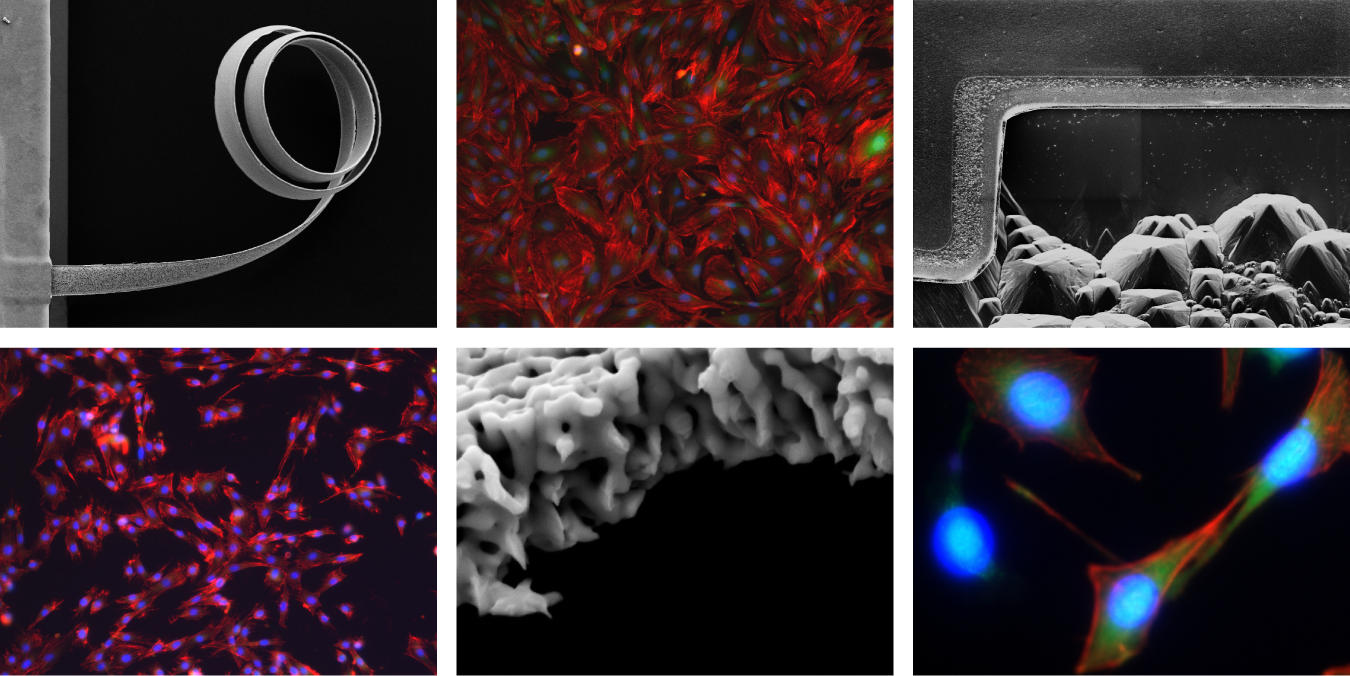Miniaturized devices have had a significant impact on our society in revolutionizing the electronics industry. A similar trend of size-reduction is emerging in the health care industry to produce small bioanalytical devices for disease diagnosis, novel methods for drug delivery to treat diseases, and microfabricated platforms for studying microorganisms. Nanostructured materials, in particular, have revolutionized capabilities of biotic-abiotic interfaces in various biomedical devices, including affinity biosensors, implantable neural electrodes, and drug delivery platforms. Despite the recent research on these materials, significant challenges remain in controlling material properties, interfacing nanocomponents with instrumentation, and engineering their interaction with biological systems.
The overarching objective of our group is to utilize our expertise at the intersection of nanoporous metal synthesis, microfluidics, and device engineering to overcome challenges in the evolution of miniaturized devices relevant to microelectronics and life sciences.
